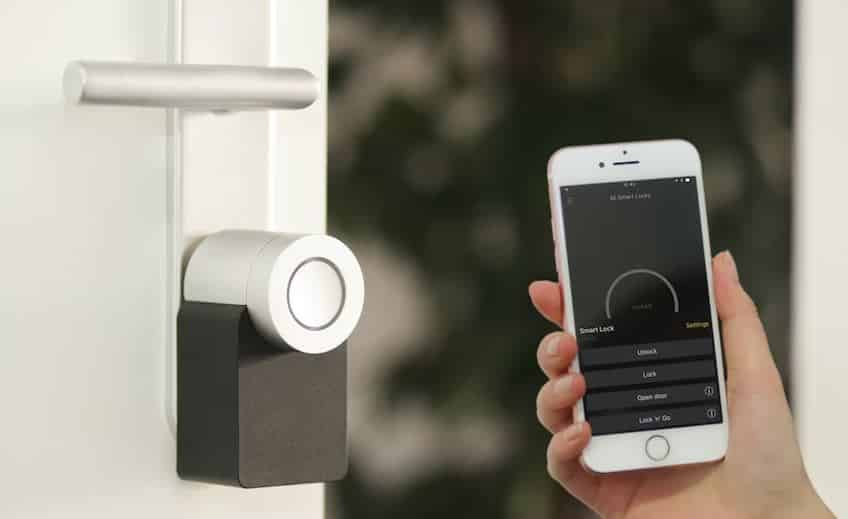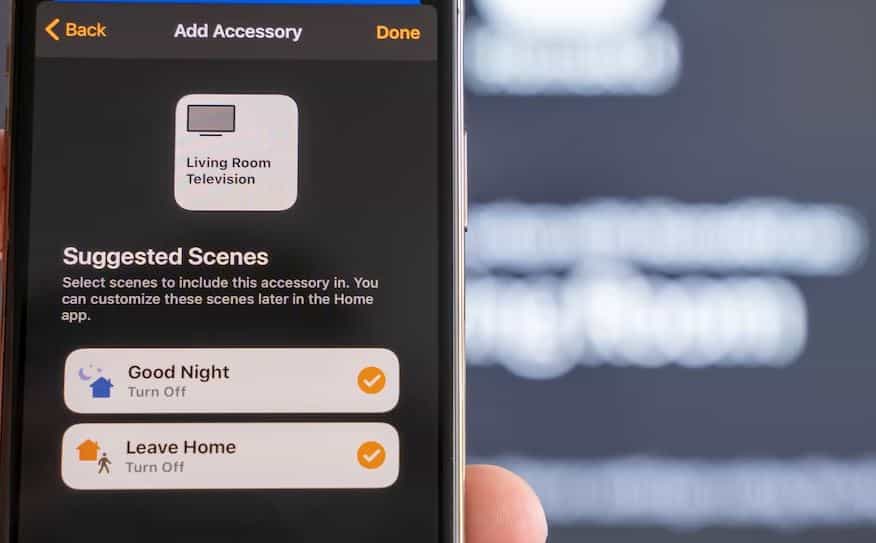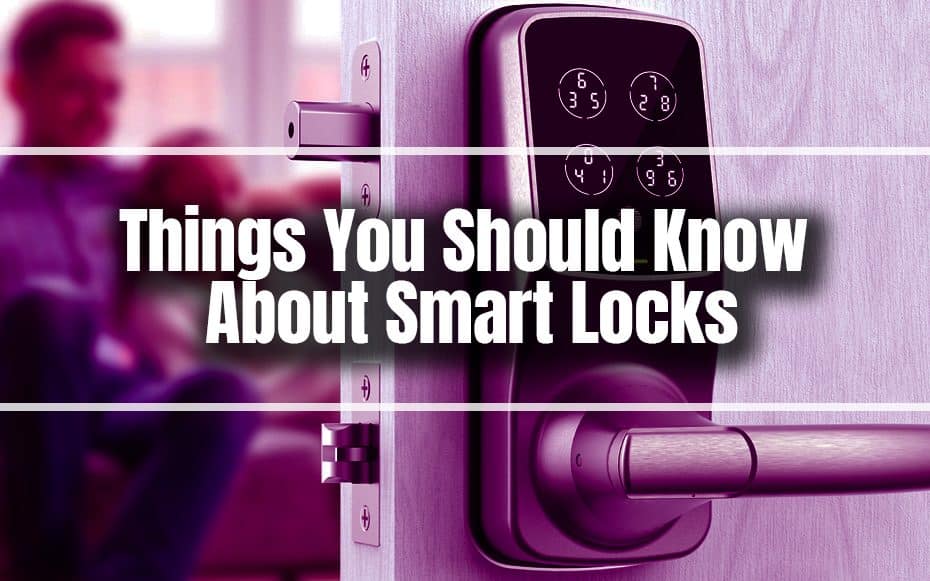Technology is an integral aspect of our daily life. From smartphones to computers to televisions and even voice assistants, we’ve all grown accustomed to utilizing smart technology at home, at work, and in our spare time.
And, as technology has advanced over the last decade, it has been the responsibility of the smart home to make this type of technology an inherent part of our daily home life.
The smart security industry is also certainly a focus for homeowners seeking to integrate this technology, so smart locks are quickly becoming popular for home security.

As smart homes become more popular, one of the places you can smarten up is your door locks. But what are the benefits? Is it secure? Would you doze in the garden shed if your phone’s battery died?
Look more closely at smart locks and what they can accomplish for you.
What is a Smart Lock?
A smart door lock provides keyless admission to the home and lets you view who enters and goes via a smartphone, giving you complete control over your home security.
High-quality smart locks on the market enable homeowners to provide virtual guest keys to guarantee that any family members or trusted acquaintances can gain access to their property, making ‘keys left under the doormat’ a thing of the past.
A smart lock can be opened using a keycard, a code, your fingerprint, an app, a home assistant, or any combination of these methods. Some will even take a regular key. They don’t have to be on the front door—smart locks may replace practically any normal lock and come in various styles. For instance, standard deadbolts, padlocks, and drawer locks are all available. Devices designed for doors have more functionality and are often more secure.
Smart door locks from reputable security companies also ensure that the product provides a comparable level of security as a traditional cylinder, providing peace of mind when needed.
And the ability to check in at any time, from anywhere, via a smartphone is a crucial benefit to enhancing your day-to-day life. Therefore, even while enjoying life, you can monitor your home from your pocket, giving you peace of mind that your home is secure.
Different Types of Smart Locks
Depending on your requirements, smart locks are available in a variety of styles. Consider which of these sorts can provide the safety your family requires. Here are some examples of smart locks you might be interested in.
Smartphone-Aided Smart Locks
Smartphones and other smart devices can access these smart locks via an internet connection. They enable you to lock and open your doors when you are not at home. It can also tell you when your door was opened and who opened it.

Biometric Smart Locks
Biometric smart locks use fingerprints as the primary key to lock or open the door. You can configure these by installing different fingerprints, allowing anyone to enter your home without needing keys. You can even utilize multiple fingerprints in case one becomes injured or wounded.
Card-Supported Smart Locks
These smart locks include cards that look like bank cards and can be used as keys to unlock your doors. To open the closed door, swipe or tap them in the designated location. They are also available at several high-end hotels.
Passcode Smart Locks
These electronic locks can be opened with a random sequence of digits. If you choose this type, update your password frequently for maximum security. Also, don’t use personal information, such as your birthdate or phone number.
Facial Recognition Smart Locks
These are the most costly and powerful smart locks available. Instead of utilizing pin codes, fingerprints, or other biometrics, these locks open by scanning your face. Place your face in front of the built-in camera and allow it to scan. The door will open once the system has detected you.
Benefits of Smart Locks
Locking and opening your front door from anywhere is a huge convenience. It would help to let a plumber into your home, but you’re at work. No worries, there is an app for that. Are you expecting a package? The same thing. You can also combine your smart lock with a doorbell camera to know who is coming in and when they will leave.

Going home with a lot of shopping and wanting to avoid fiddling with a key? Unlock your vehicle’s door. Similarly, if you doubt their capacity to lock up before they leave for the day, you may double-check the condition of your door on your phone and lock it remotely if needed. Many locks will also allow you to schedule a relock after a specified number of minutes or at specific periods. You won’t have to fret about failing to lock the door with scheduling.
Downsides of Smart Locks
Smart locks may not be the ideal solution to your concerns, but they can give additional home protection that a traditional lock and key cannot. Considering below are some potential drawbacks to employing this locking scheme.
Hacking Vulnerability
Because most electronic locks rely on internet connectivity to access and work, they could be hacked by someone interested in your home. They’ll be able to open your doors without your knowledge after they’ve done so. As a result, it’s critical to maintain your connection safe and to change your passwords frequently.
Thankfully, most electronic locks include an alert mechanism in the event of unwanted access. If the system determines that the entry did not originate with you, it will promptly notify authorities of a probable illegal infiltration.
Technology Failures
Smart locks, like other smart technologies, may eventually fail. Particularly so if they are overused or physically damaged. Also, the technology may need to appropriately address your request. For example, even if you only try to unlock one door, all doors begin to open, especially if all locks are linked via the internet.
Final Words
Smart locks are fantastic tools that give additional levels of security for your house and family that a traditional lock and key cannot. Yet, there are risks to employing them, including technological failures, hacking, and power dependence.
Aside from that, smart locks continue to be more efficient than traditional keys, which can be lost at any time. It also frequently comes with a security alert that alerts its owners and authorities to unlawful access. You are responsible for obtaining the appropriate lock for you, your family, and your smart home.
